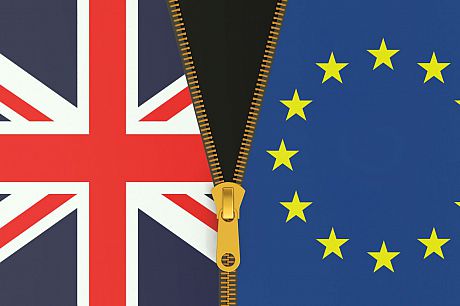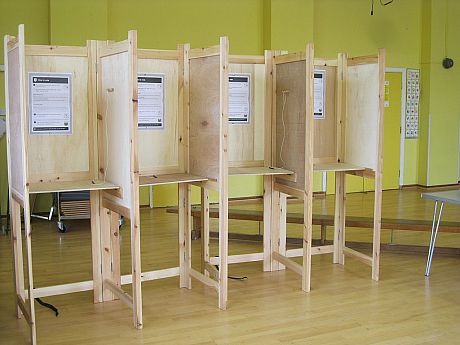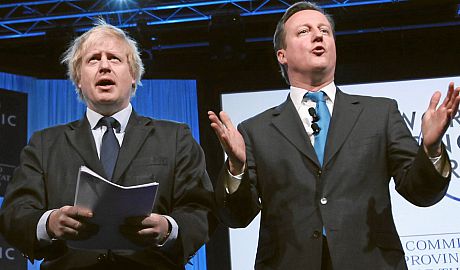What if the EU Referendum vote is a dead heat?
Dr Sue Collard is a Senior Lecturer in French Politics & Contemporary European Studies at the University of Sussex.
If the most recent polls are to be believed (and as we all know, this is a very big ‘if), the result of Thursday’s referendum vote is likely to be very close. There has been much media comment on possible political scenarios that would follow from this, depending on whether we vote to Leave or to Remain.
But what if it’s a dead heat?
Statistically this is of course highly unlikely, but not impossible. Or more plausibly, what if the difference between the two camps is just a handful of votes or so, like in the recent Austrian presidential election? How close would the result have to be to trigger a recount?
How close would the result have to be to trigger a recount? There is surprisingly no simple answer to this apparently simple question.

There is surprisingly no simple answer to this apparently simple question. The general rules of the game are set out in the EU Referendum Act 2015, and the specific regulations regarding the conduct of the poll are provided under the European Union Referendum (Conduct) Regulations 2016 (SI 2016/219) (the “2016 Regulations”). As for all elections in the UK, Counting Officers are responsible for the votes cast in their voting area, and specific guidance rules for this referendum have also been published by the Electoral Commission.
The regulations for conducting recounts make it clear that there is no provision for the Chief Counting Officer to direct a re-count to be carried out across all voting areas on the grounds that the result at the national level is close: re-counts can only take place at voting area level, not nationally, or even regionally. Accurate local totals for each voting area are therefore fundamental to an accurate result in which voters can have confidence, and Counting Officers will no doubt be painfully aware of the pressures on them to get things right. So, what if the vote is locally safe but nationally extremely close, then what?
Could overseas voters make the difference?
If we should find ourselves in the Austrian scenario, overseas voters might just make the difference.
In the 2015 general election, there were many reports and complaints to the Electoral Commission relating to various problems with overseas postal votes that never arrived, or arrived late, meaning that many overseas voters’ ballot papers were either lost or not counted.
If a significant number of overseas votes were to be ‘lost’ in the referendum, this could lead to legal challenges and petitions for judicial review by militant ex-pats.

Indeed, Electoral Commission engagement with a range of ex-pat organisations and media outlets, both before and after the election, led to a public acknowledgement of the extent and nature of the problems encountered by overseas voters, which were much in evidence on ex-pat web-sites and discussion fora. (These administrative problems could at least partly help to explain the traditionally low registration levels of British citizens abroad: frustrated by procedural difficulties, many have given up trying.)
Many of those who left the UK for a better life beyond our shores, did so because they sympathize with the view that Britain has taken in ‘too many immigrants'.
If a significant number of overseas votes were to be similarly ‘lost’ in the referendum, this could lead to legal challenges and petitions for judicial review by militant ex-pats, still smarting from the recent unsuccessful attempt to have overseas voting rights in this referendum extended to all British nationals resident in the EU, regardless of when they left the UK.
Any such legal challenges would obviously prolong and deepen the sense of political uncertainty which would necessarily flow from a very close result. But could it also make a difference to the final outcome?
Numerically, there were 105,845 registered overseas voters in 2015, and the figure could well be higher for the referendum, given the high stakes for the estimated 1.2m-2.0m British nationals estimated to be resident elsewhere in the EU, and given the recent introduction of on-line registration. So the potential impact is clear.
But since British overseas electors are dispersed across the various constituencies in which they are registered (based on their last UK address), there is no measurable ‘overseas vote’, such as in countries where overseas voters have separate registration, like France or Italy, where they can potentially ‘tip’ or even ‘swamp’ the final electoral outcome (Bauböck, R. 2007).
Let’s hope there is a clear result one way or the other, though even this may not in the long term resolve Britain’s very uneasy relationship with the EU.

If it were somehow possible to identify British overseas voters collectively at national level, it would be tempting to assume that for those resident in the EU at least, the vote would be overwhelmingly to Remain. Legal challenges regarding any ‘lost votes’ would presumably have to be made individually at local level, with the collective aim of producing a multiplier effect that could clinch the result.
However, high profile Brexiters such as Nigel Lawson who lives in France, remind us that this assumption would be somewhat simplistic. Besides, many of those who left the UK for a better life beyond our shores, did so because they sympathize with the view that Britain has taken in ‘too many immigrants’: support for UKIP and Leave may well be stronger on the Spanish Riviera than we might imagine.
Given the problems for overseas voters recorded in 2015, and no doubt mindful of the potential consequences for the referendum vote, the Electoral Commission has taken measures to avoid similar issues in this referendum, and electoral authorities have been encouraged to prioritise overseas voters in sending out ballot papers early.
Whatever the outcome, let’s hope there is a clear result one way or the other, though even this may not in the long term resolve Britain’s very uneasy relationship with the EU.
This article originally appeared on the 'Politics at Sussex' blogging site.





